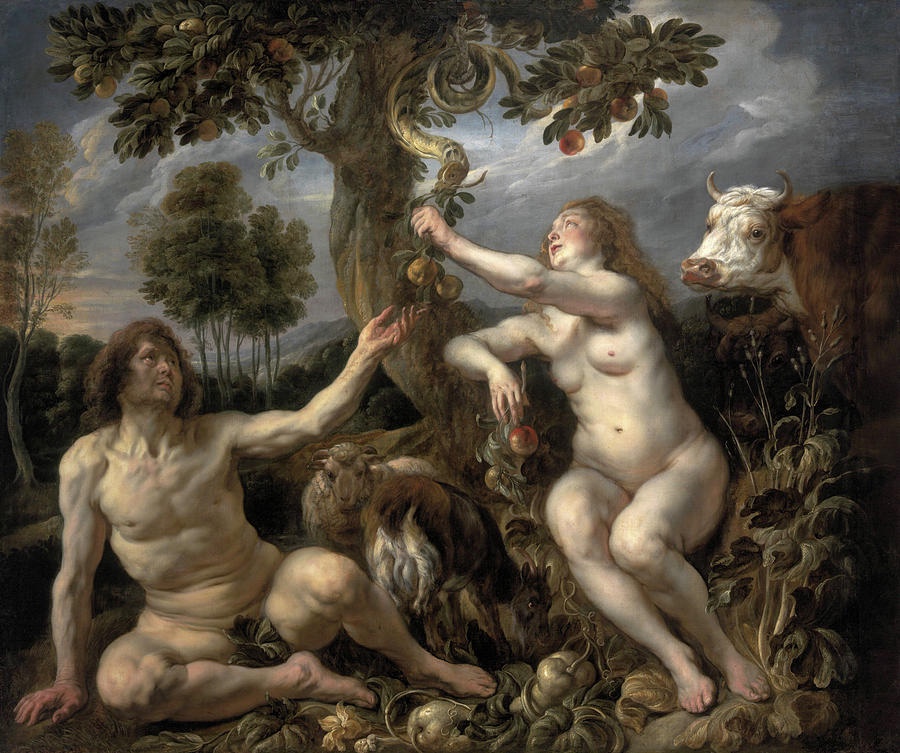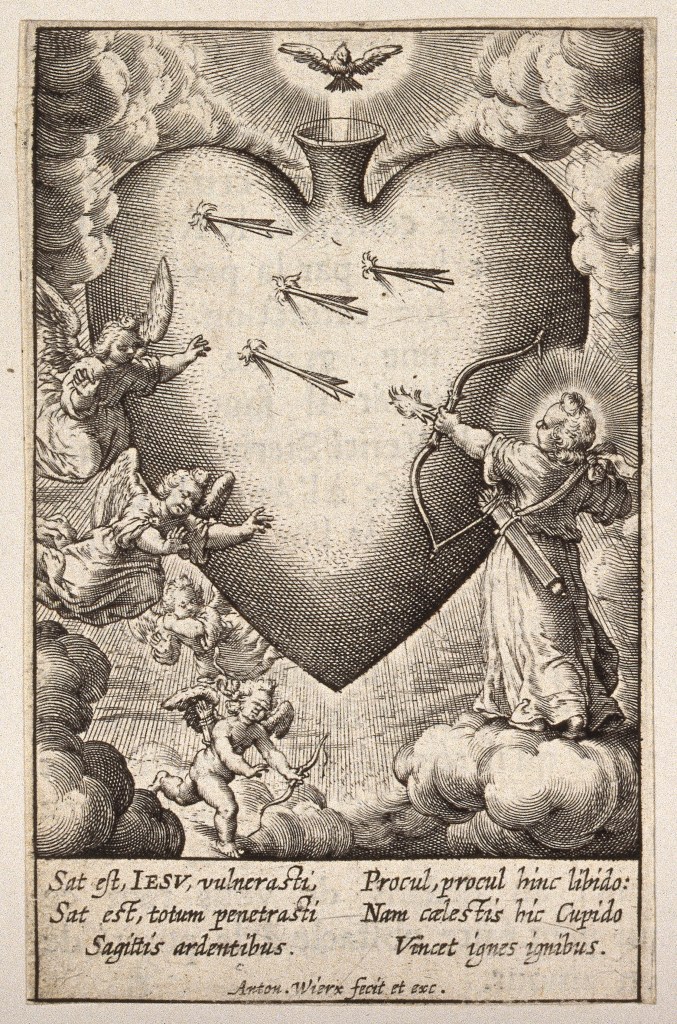Jesus went to the district of Tyre.
He entered a house and wanted no one to know about it,
but he could not escape notice.
Soon a woman whose daughter had an unclean spirit heard about him.
She came and fell at his feet.
The woman was a Greek, a Syrophoenician by birth,
and she begged him to drive the demon out of her daughter.
He said to her, “Let the children be fed first.
For it is not right to take the food of the children
and throw it to the dogs.”
She replied and said to him,
“Lord, even the dogs under the table eat the children’s scraps.”
Then he said to her, “For saying this, you may go.
The demon has gone out of your daughter.”
When the woman went home, she found the child lying in bed
and the demon gone.
—Mk 7:24-30
I’ve been Catholic for a while now. But today’s Gospel reading—from my experience at least—has been among the most misunderstood of all Gospel passages. At least to me it is simply based on “anecdotal evidence.” This event in the Gospels is termed as the exorcism of the Syrophoenician woman’s daughter.
The Gospel passage is pretty simple. Jesus is running His ministry, goes to Tyre, enters a house, sees a woman whose daughter is possessed by demons; the woman pleads for relief for her daughter, Jesus appears to rebukes her first, the woman pleads again, the woman’s daughter is healed. In the midst of the miracles Jesus performs throughout His time on Earth, it’s a pretty run of the mill event: Jesus goes to a town, frees a woman’s daughter of demonic possession. A miracle, right? I’m often told by my non-Catholic friends this is an example of Jesus’ “unsympathetic” nature. “Why doesn’t Jesus just heal the woman’s daughter immediately!? Why make an allusion to a woman being a dog!?” It’s more complex than that.
I’m currently being trained as a Lay Dominican. (Then again, learning as a Lay Dominican and as a Catholic never ends. The journey of faith and towards sainthood is always present until death!) I’ll be fully professed in August. We’ve recently had a discussion on the Bible and what are called “historical-critical” methods and how to read the Bible proper, especially as the Vatican doesn’t have a wholesale guide on how to read every *single* passage of the Bible. Believe it or not, the Vatican doesn’t! We of course have doctrines and traditions of the faith that mandate a certain reading of the Bible. And this is where one has to be careful of reading certain passages and letting our emotions get the best of us. I’ve heard plenty of individuals ask me, “Well, did this woman teach Jesus to be tolerant?” Well, no. Because to suggest otherwise would be to suggest Jesus lacks what is often called the “divine intellect.” This isn’t exactly new. We may have heard of “rogue” priests who say things that distort Church teaching, but this is a larger historical problem. And the Truth always prevails! Arius of Alexandria caused a scandal in the 4th century when he suggested Jesus was *not* the Son of the Father, but a “first” creature who became divinized and got a promotion. This scandal is often called “Arianism,” and historical figures as far as Isaac Newton believed it. Saint Nicholas, according to legend, once punched Arius for promoting this heresy. (Now, don’t go around doing this!)
That being said, how do we answer to some folks who claim Jesus in this Gospel is unsympathetic?
Let’s break it down.
First, it’s important to note that the woman called Jesus “Lord.” Not “sir.” “Lord.” Like many other individuals who come across Jesus, this woman knew and believed Jesus was the Son of David, God’s Son, the Lord, and the Messiah. This woman never met Jesus but knew and believed. Her faith was truly great, and so great, despite her despair at her daughter suffering for so long. She didn’t need signs to believe, and this woman was not a “doubting Thomas”; she truly believed through the thick and thin. No doubt she also heard of many stories of Jesus’ miracles—healing a leper. Healing a paralytic.
The woman’s faith will soon be tested. This is made all the more apparent if you read Matthew 15’s retelling of this event: “But He did not say a word in answer to her. His disciples came and asked Him, ‘Send her away, for she keeps calling out after us’” (Matthew 15:23). Imagine that! Asking Jesus, and Jesus simply does not respond. I am sure we have all felt this in prayer—not getting a response, and simply not getting the response we expect. Even Jesus’ disciples tell her to go away! Throughout history, and through the lives of the saints, we are given plenty of stories where their faith is tested, and they are rewarded. But can you imagine being at home and not getting a response during countless days of prayer? Sure. We all can. But this woman was in front of Jesus and His disciples! I’m often reminded of the story of Saint Bernadette of Lourdes who was mocked by the townspeople and insisted the grotto was where it was. Of course, she was proven right. This woman’s faith will also soon be rewarded.
Then Jesus says, “Let the children be fed first. For it is not right to take the food of the children and throw it to the dogs.” It’s this passage, my non-Catholic friends tell me, that makes Christ “unsympathetic.” This is where analyzing the language and context of the books of the Bible is important. This is especially the case as the Bible was, of course, not written in English. As some of you know, the Gospels were written in Greek. In Greek, there are two words for dogs: kunaria and kyon. Kyon refers to wild dogs, kunaria refers to dogs that are pets. Obviously, one term is more affectionate and endearing than the other. At that time, many people referred to the Canaanites as “wild dogs” (i.e.: kyon). (Tyre is a Canaanite region.) But Jesus refers to kunaria, or pets. The woman herself is not insulted and, in the original Greek of the Gospel passage, says, “Lord, even the [kunaria] under the table eat the children’s scraps.” In many ways, the woman used the word “pet” in a larger analogy: she already saw herself as a follower of Christ, in the same way a dog follows their master, or owner. And isn’t Jesus the Master? In many ways, this already rings true to me. All Dominicans are referred to as “hounds of the Lord.” (St. Dominic is often portrayed with a dog. St. Dominic legit is a saint whose intercession you should ask for if you’re a dog owner!)
This woman was not insulted; she was happy to think of herself as a member of Jesus’ household, one of His favorite pets! Jesus then immediately grants her prayer. These analogies aren’t terribly new throughout the Gospels, either: even at the Last Supper, Jesus refers to the twelve apostles as “children.” In this woman’s great humility, she was not insulted; she merely asked for anything. Of course, it is at this moment, the woman’s faith is rewarded and her daughter is free of demonic possession. What can we learn from this woman? She inspires us to persevere and place a childlike trust in Him. Jesus Himself says, “Great is your faith!” Do we place the same faith in Jesus when the times are rough? Do we give in to others who tell us to go away and not persevere in prayer? Ash Wednesday (and the start of Lent) is next week, and I often wonder if we’re all placing a childlike faith in Jesus. And is our faith as great as the Canaanite woman’s?




